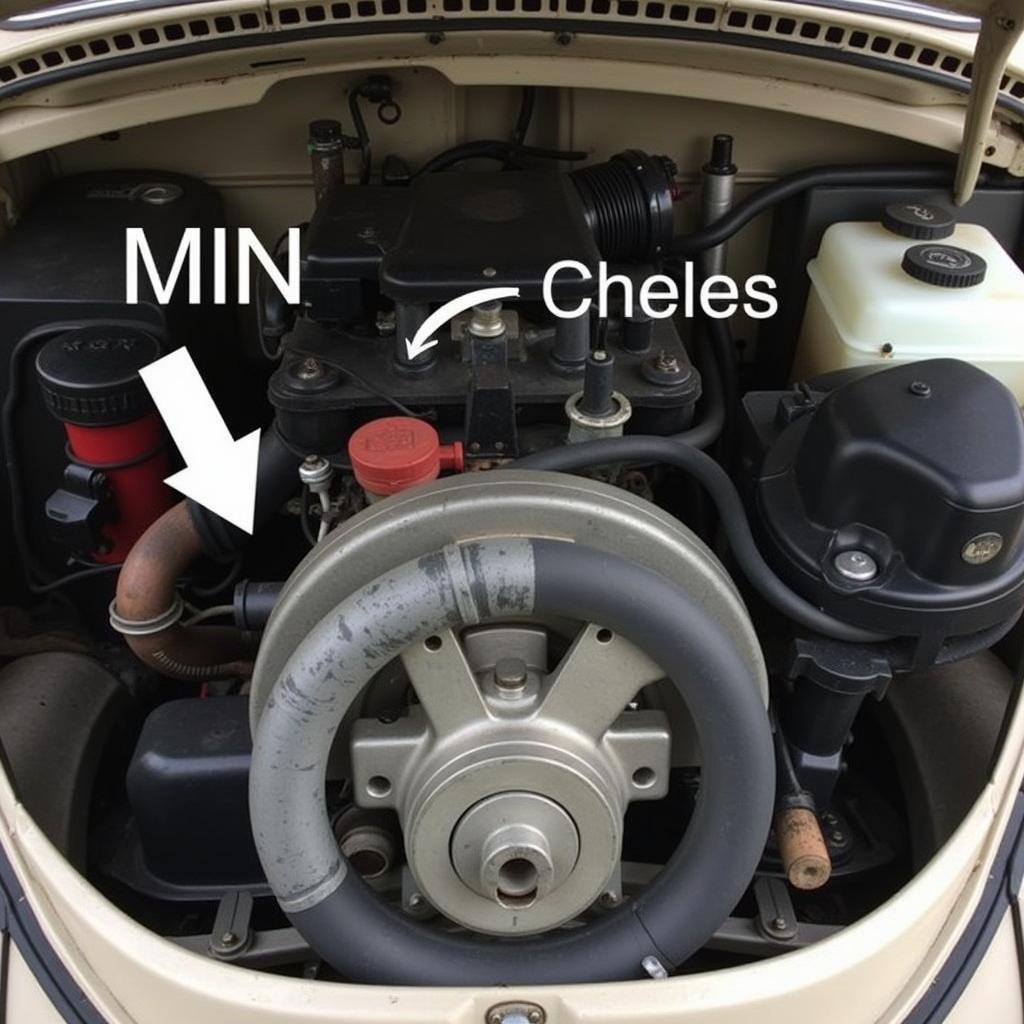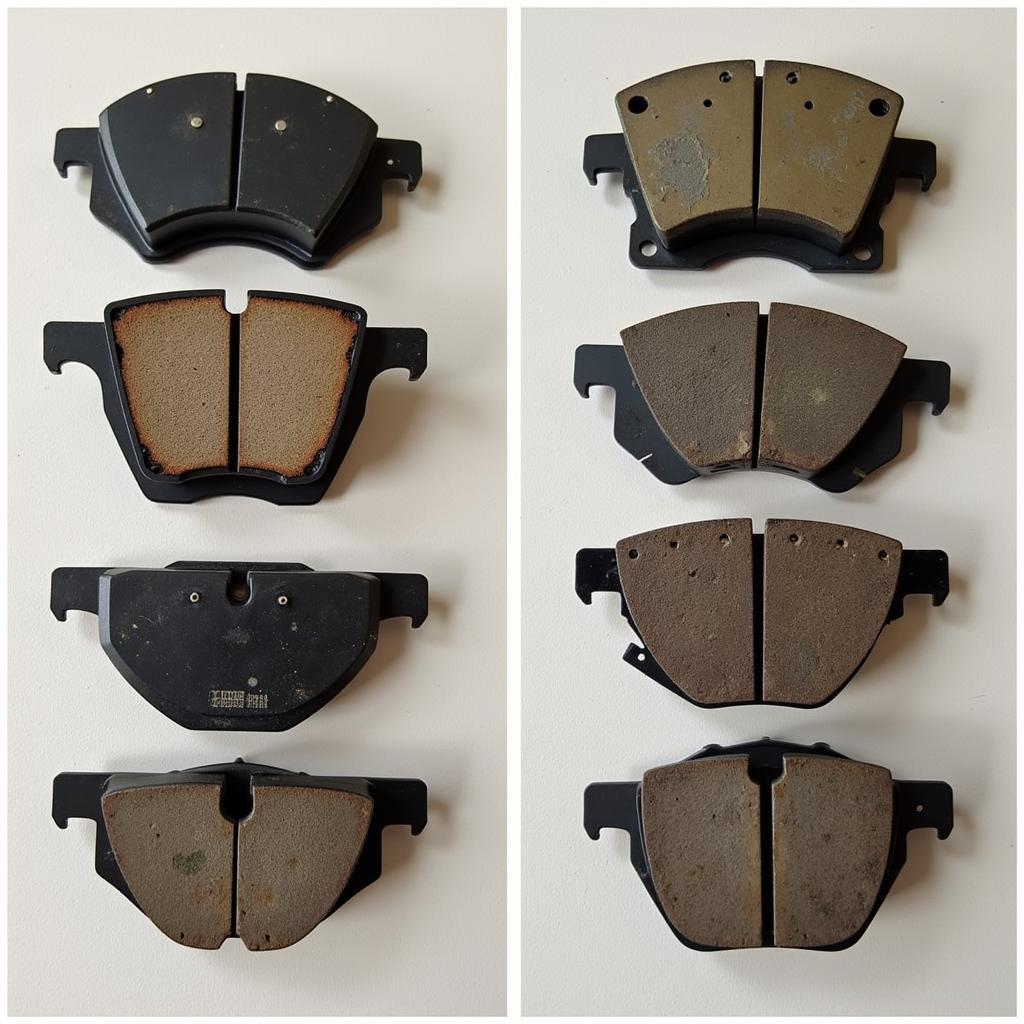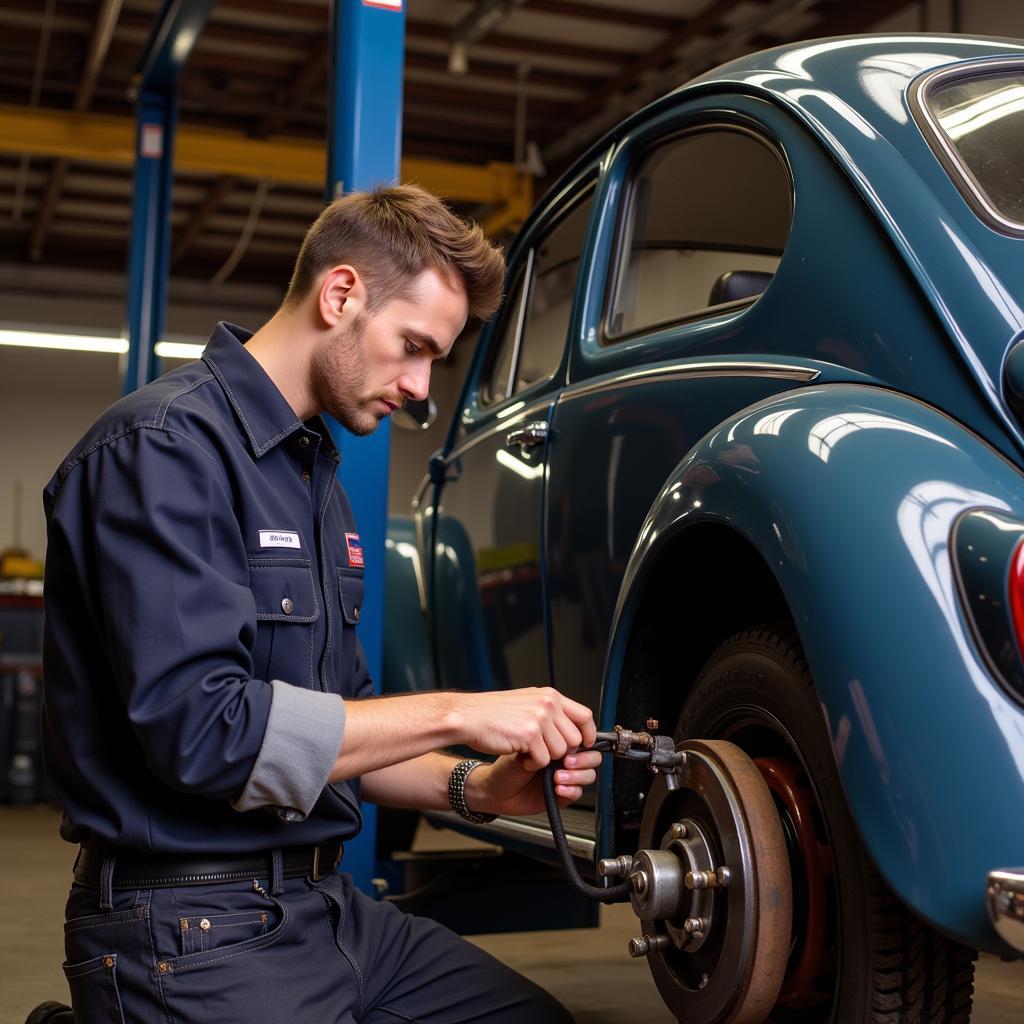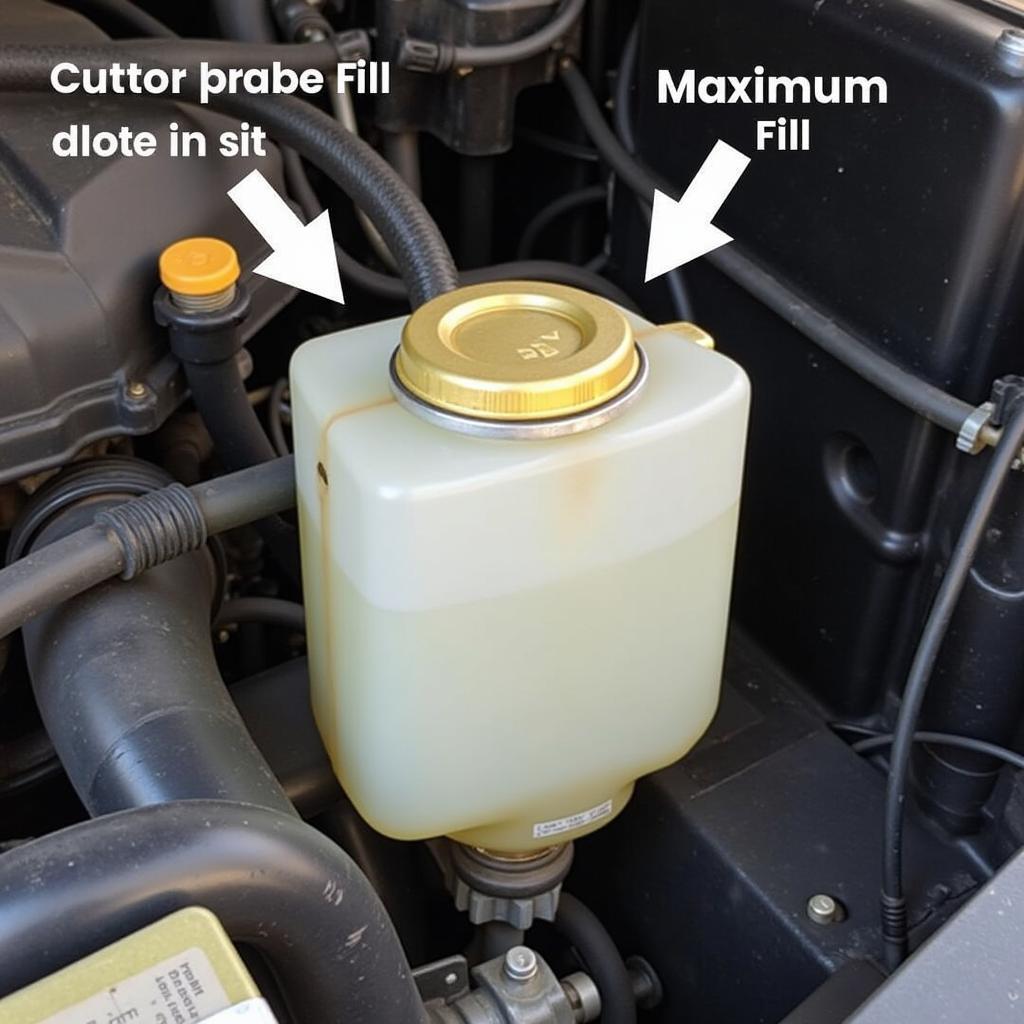The brake warning light on your 1969 VW Beetle is a crucial safety feature designed to alert you of potential issues within the braking system. When illuminated, it signifies a problem that requires immediate attention. Ignoring this warning could lead to reduced braking performance and potentially dangerous situations. This comprehensive guide will delve into the common causes of a lit brake warning light on a 1969 VW Beetle and provide you with the steps to diagnose and address the issue effectively.
Understanding Your VW Beetle’s Brake System
Before diving into troubleshooting, it’s helpful to understand the basics of your Beetle’s braking system. It’s a hydraulic system, meaning it uses brake fluid to transmit force from the brake pedal to the wheels, ultimately slowing or stopping the vehicle.
The system consists of several key components:
- Master Cylinder: This component converts the mechanical force from the brake pedal into hydraulic pressure.
- Brake Lines: These metal tubes carry the pressurized brake fluid to the wheels.
- Wheel Cylinders (Drums) or Calipers (Discs): These components receive the hydraulic pressure and activate the braking mechanism at each wheel.
- Brake Shoes (Drums) or Brake Pads (Discs): These friction materials are forced against the drums or rotors to create the friction needed to slow or stop the vehicle.
Common Causes of a 1969 VW Beetle Brake Warning Light
There are several reasons why your 1969 VW Beetle’s brake warning light might be on. Let’s explore some of the most frequent culprits:
1. Low Brake Fluid Level
The most common cause is low brake fluid. As brake pads wear down, the brake fluid level in the master cylinder naturally drops. A leak in the brake system will also cause a low fluid level.
How to check:
- Locate the brake fluid reservoir. It’s typically a translucent plastic container mounted on the driver’s side of the engine bay.
- Check the fluid level against the “Min” and “Max” markings on the reservoir.
Solution:
- If the fluid level is low, add the correct type of brake fluid (as specified in your owner’s manual) until it reaches the “Max” line. If the light goes off after adding fluid and doesn’t come back on, you may just need new brake pads.
- If the fluid level is extremely low or you have to add fluid frequently, you likely have a leak that requires immediate attention.
 1969 VW Beetle Low Brake Fluid
1969 VW Beetle Low Brake Fluid
2. Worn Brake Pads or Shoes
Worn brake pads are another common cause of an illuminated brake warning light. Most 1969 VW Beetles have drum brakes at all four wheels, but some later models may have front disc brakes.
How to check:
- Drum Brakes: You’ll need to remove the drum to inspect the brake shoes. If the friction material is worn down to about 1/4 inch or less, it’s time for replacement.
- Disc Brakes: You can often visually inspect the brake pad thickness through the spaces between the wheel spokes. If you can’t see the pads, you may need to remove a wheel for a better view.
Solution:
- Have your brake pads or shoes replaced by a qualified mechanic. It’s recommended to have all four wheels serviced at the same time.
 Worn Brake Shoes 1969 VW Beetle
Worn Brake Shoes 1969 VW Beetle
3. Brake System Leak
A leak anywhere in the brake system, including the master cylinder, brake lines, wheel cylinders, or hoses, can trigger the warning light.
How to check:
- Look for signs of leakage: Inspect the ground under your parked car for any signs of brake fluid, which is typically clear or amber-colored.
- Check brake components: Visually inspect the master cylinder, brake lines, and connections near each wheel for any signs of wetness or fluid residue.
Solution:
- A brake system leak is a serious safety issue and should be addressed immediately. Take your vehicle to a qualified mechanic to diagnose and repair the leak.
4. Faulty Brake Light Switch
The brake light switch is responsible for activating your brake lights when you press the brake pedal. A malfunctioning switch can sometimes cause the brake warning light to illuminate.
How to check:
- The brake light switch is usually located above the brake pedal arm, under the dashboard. You can test its functionality by having someone observe the brake lights while you press and release the pedal. If the lights don’t illuminate, the switch may be faulty.
Solution:
- Replacing the brake light switch is a relatively simple repair that a mechanic can handle.
5. Issues with the Parking Brake
On some vehicles, including certain 1969 VW Beetle models, the brake warning light may also be linked to the parking brake system.
How to check:
- Make sure the parking brake is fully released. If the light stays on even when the parking brake is disengaged, there might be an issue with the parking brake cable or mechanism.
Solution:
- Adjust or repair the parking brake system as needed.
What to Do If Your Brake Warning Light Comes On
If your brake warning light comes on while driving, it’s crucial to take the following steps:
- Stay Calm: Avoid panicking, as it can impair your judgment.
- Assess Your Surroundings: If possible, safely pull over to the side of the road away from traffic.
- Turn on Hazard Lights: Alert other drivers that you are experiencing a problem.
- Check the Brake Fluid: If you feel safe doing so and have brake fluid on hand, carefully check the fluid level. Do not continue driving if the fluid level is extremely low.
- Call for Assistance: Contact a qualified mechanic or towing service to diagnose and repair the problem. Driving with a potential brake system issue is incredibly risky.
Expert Insights
We asked John Smith, ASE Certified Master Technician with over 20 years of experience specializing in classic VW Beetles, for his advice on dealing with brake warning lights on these vehicles:
“Never ignore a brake warning light on a 1969 Beetle. These cars have a single-circuit brake system, meaning if you lose brake fluid, you lose all braking power. It’s not worth the risk. Even if it’s a minor issue, addressing it promptly can save you from a major headache down the road.”
 Mechanic Inspecting VW Beetle Brake System
Mechanic Inspecting VW Beetle Brake System
Conclusion
A glowing brake warning light on your 1969 VW Beetle is a signal that shouldn’t be ignored. By understanding the common causes and following the troubleshooting steps outlined in this guide, you can address the issue effectively and ensure your safety on the road. Always remember, when it comes to brakes, erring on the side of caution and seeking professional help is always the wisest course of action.

